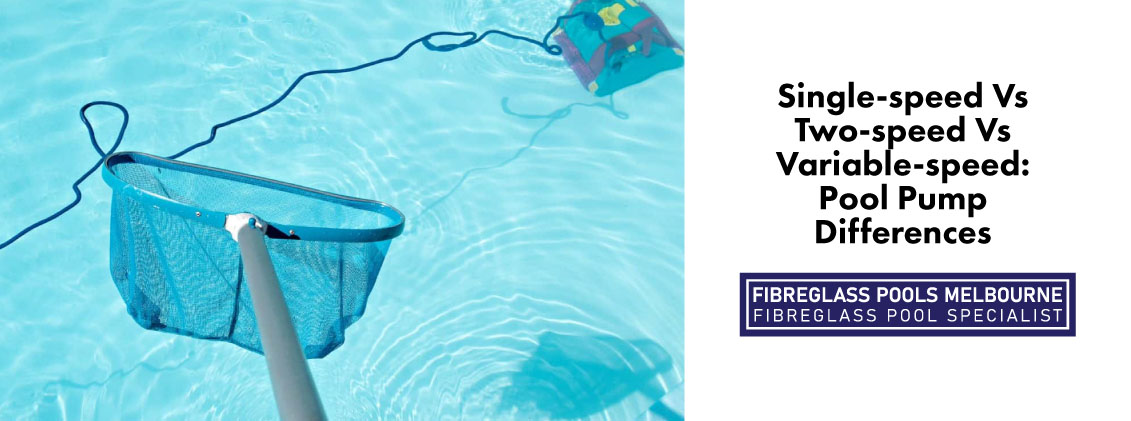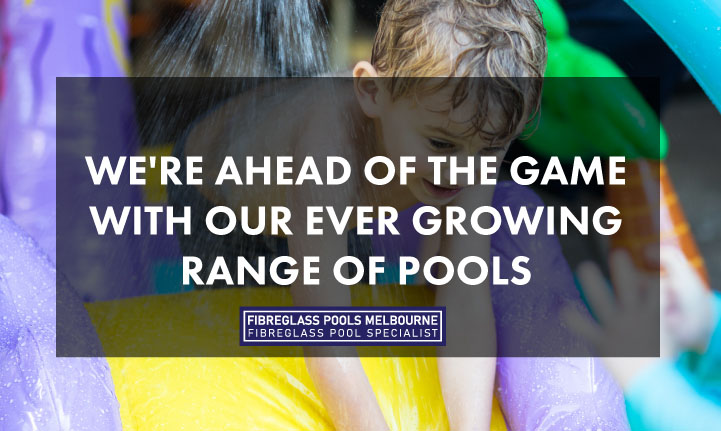Single-speed Vs Two-speed Vs Variable-speed: Pool Pump Differences Explained
In this post, we'll take you through the pros and cons of each type of pool pump. If you're thinking about investing in a pool pump, read on to know about the different types so that you can make the most informed buying decision.

Pool pumps are among the most important swimming pool equipment. Here’s how a pool pump works – it carries the pool water to other pool equipment such as the chlorinator, filter, and heater. By doing so, it plays an indirect but vital role in getting the water sanitised, filtered, and heated. Additionally, it also facilitates water circulation, which ensures the even distribution of chemicals throughout the pool water and keeps algae and bacterial growth at bay. Pool pumps also aid in removing debris from the water.
When it comes to choosing a pool pump for your swimming pool, you can pick from different options which include:
- Single-speed pumps
- Two-speed pumps
- Variable-speed pumps
Single-Speed Pool Pumps
These are the most traditional types of pool pumps. Even though modern variants like two-speed and variable-speed pumps are readily available these days, there are many homeowners who still prefer single-speed pumps. These pumps, as their name suggests, are capable of running at only one speed. Buyers can typically choose from various horsepower options – the lowest horsepower is 0.5 HP, which works for small, private pools. However, if you’re thinking of investing in a pool pump for commercial purposes, you should go for a 20 HP model.
Single-speed pool pumps are among the cheapest types of pool pumps. However, despite the lower upfront costs compared to other pumps, regular use of these pumps can lead to your utility bills skyrocketing. This is particularly true for homeowners who choose a horsepower that they don’t really need. For instance, if your pool is small, there’s really no need for you to invest in a 20 HP model. But if you do, expect to spend as much as you would on your air conditioner use every month. On the repair and maintenance front, single-speed pool pumps are advantageous as their designs are simple, which makes them easier to maintain.
So, the pros of single-speed pool pumps include:
Low upfront cost
Different horsepower options
Compatible with both residential and commercial swimming pools
Easy and affordable to maintain
The cons of single-speed pool pumps are:
High electricity bills, particularly if a higher capacity is used for a pool that doesn’t need it

Two-Speed Pool Pumps
Two-speed pool pumps are a step up from the single-speed variants as they give homeowners the option of toggling between two speeds. Typically, two-speed pool pumps feature much more efficient motors compared to single-speed pumps. As a result, these pumps guarantee energy savings. Of course, this ultimately depends on how you use the pump. If you’re running the pump at a higher speed all the time, your savings may not be as much. However, there’s definitely much more potential for savings with this type of pool pump.
One of the major disadvantages of two-speed pool pumps available in the market is the fact that many of them are set up with single-speed timers. This is something you should be careful about before investing in a two-speed pump. Quite simply, if a two-speed pool pump comes with a single-speed timer, it just won’t serve the purpose you’re buying it for. Check if the pump comes with an advanced automation system and/or a two-speed mechanical timer. If it does, it should work just fine. On the drawback front, two-speed pool pumps aren’t compatible with various pool equipment such as heaters, salt chlorine generators, and pool vacuums.
So, two-speed pool pumps offer the following advantages:
They can be energy-efficient, but only if they are used wisely
They can be energy-efficient, but only if they are used wisely
More efficient motors compared to single-speed pumps
More efficient motors compared to single-speed pumps
The disadvantages of two-speed pool pumps include:
Many pumps claiming to be two-speed come with single-speed timers
Many pumps claiming to be two-speed come with single-speed timers
Incompatibility with pool equipment like pool vacuums, salt chlorine generators, and heaters
Incompatibility with pool equipment like pool vacuums, salt chlorine generators, and heaters

Variable-Speed Pool Pumps
Variable-speed pool pumps feature the most cutting-edge tech and are becoming popular among homeowners who don’t their high pricing. They typically feature different flow rate settings such as low, medium, and high. The high setting is best for situations when you need chemicals to be filtered. During the hours of peak energy use in your residence, you can turn on the low setting. These pumps are considerably more expensive than single-speed and two-speed pumps. However, in the long run, they’re more cost-effective.
In addition to the flow rate settings, you can also toggle the turnover rate, which reflects the time taken to filter the entirety of the pool. The RPM of a variable speed motor ranges from 600 – 3450 and the horsepower ranges from 0.5 – 1.5 HP. For energy efficiency, you should opt for a lower horsepower. Another highlight of variable-speed pool pumps is their permanent magnet motors, which offer far more efficiency compared to conventional induction motors. While the high-end tech featured in variable-speed pool pumps makes them more powerful, the parts and components are expensive. They can also take much more time to repair compared to single-speed and two-speed pumps.
Here are the benefits of regularly maintaining your swimming pool!
All in all, the pros of variable-speed pool pumps include:
- Their ability to switch between different speeds
- Smart features
- Limited noise
- Both energy and cost-efficient
The downsides of these pumps are:
- Higher upfront costs compared to single-speed and two-speed pumps
- Expensive parts and components
- Harder to repair and maintain compared to conventional pumps
Conclusion
So, there you have it – all the similarities and differences between the various types of pool pumps, explained. If you want the most modern tech, there’s no doubt about it – you should pick from variable-speed pool pumps. However, if you’re on a tight budget, it’s better to pick from single-speed and two-speed pumps. The bottom line is that your swimming pool needs a pool pump. So, if you haven’t yet invested in one, it’s about time you do. We recommend reaching out to a licensed pool technician near you to understand the type of pool pump that would compliment your swimming pool.

